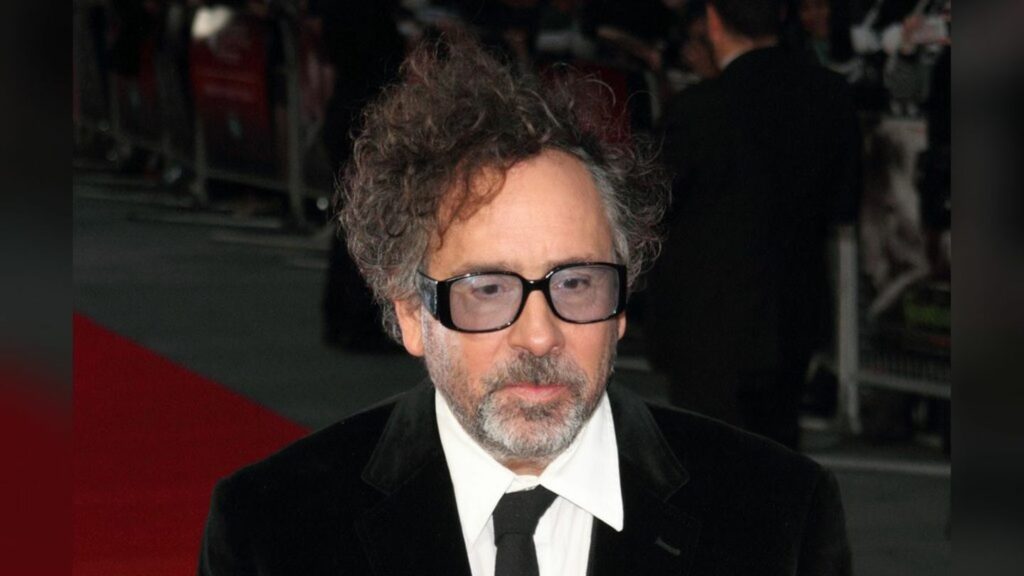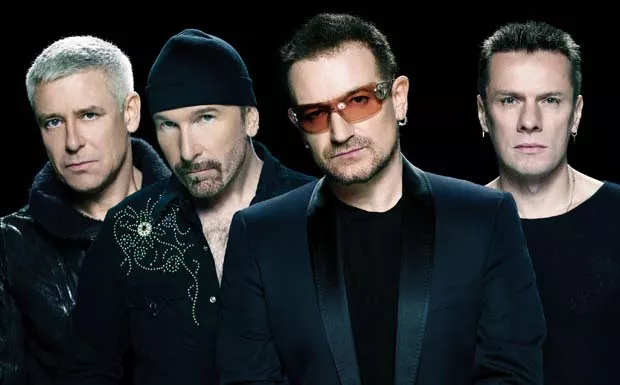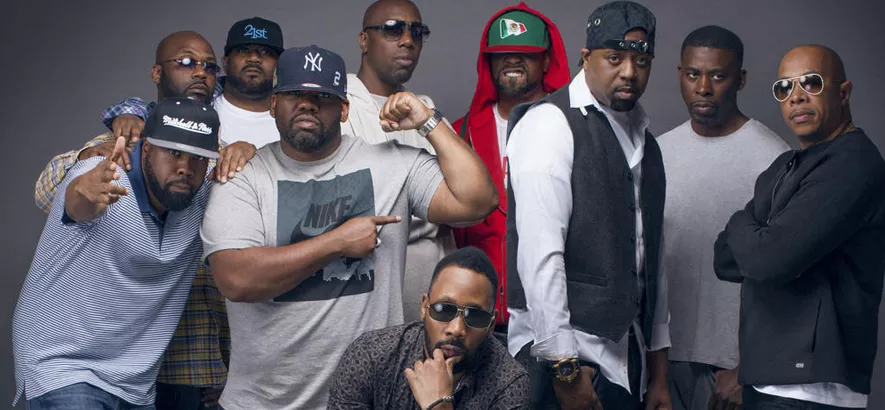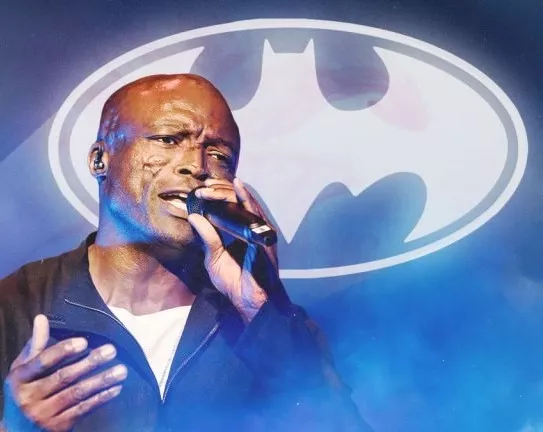Seal, U2, and the Wu Tang Clan contributed to the soaring success of the Batman Forever soundtrack, propelling it to the top of the charts and cementing its place among the greatest movie soundtracks of all time.
Although Joel Schumacher’s Batman Forever is often criticized by fans of the Dark Knight’s film franchise for various reasons, such as the infamous bat nipples, the replacement of Billy Dee Williams with a hammy Tommy Lee Jones as Two-Face, and a scene in which Chris O’Donnell’s Dick Grayson showcases his martial arts skills using laundry, the movie’s soundtrack has stood the test of time. Released in 1995, when movie soundtracks were a crucial part of the marketing machine, Batman Forever’s soundtrack was one of the best of its time.
From Prince to Paupers
The power of a soundtrack album was already evident in Tim Burton’s 1989 Batman, which featured entirely new songs from Prince. The album was a massive success, with “Batdance” becoming a hit single, and tracks like “Partyman” capturing the film’s eccentric villain, the Joker, and Burton’s overall vision. The soundtrack could have been even more ambitious. In a 2001 Rolling Stone interview, Prince revealed that the album was initially pitched as a collaboration between himself and Michael Jackson, with Jackson as Batman and Prince as the Joker. The plan was to divide the songs, with Jackson performing ballads associated with the heroes, while Prince delivered funk songs that would play for the villains.

Jackson’s busy touring schedule made it difficult for him to contribute to the project, and being on different labels further complicated matters. Looking back, it was likely for the best that he didn’t participate.
After the success of the first film, Burton was given more creative freedom for Batman Returns (1992), including control over the soundtrack. According to the Hollywood Reporter, composer Danny Elfman initially opposed the idea of including popular music in the soundtrack, and even threatened to quit. Burton also seemed hesitant to use Prince’s songs, with only “Partyman” and segments of “Trust” appearing in the 1989 film.
For the sequel, Elfman’s score took center stage, with the exception of one track by Siouxsie and the Banshees called “Face to Face.” Co-written by Elfman, the song reflected the film’s dark, Gothic theme and focused on the villains, particularly Catwoman. Burton specifically sought out the band, praising Siouxsie’s ability to create a realistic primal cat sound.
Despite its brooding and sensuous qualities, “Face to Face” failed to gain much traction with fans and has largely been forgotten in the years since.
Saturday Night Fever On Acid
After Batman Returns was deemed too dark for mainstream audiences, Warner Bros. decided to take a different approach with Batman Forever. Burton transitioned into a producer role, and Joel Schumacher, who had just enjoyed success with The Client (1994), was brought in to create a Batman that maintained the character’s darker traits while incorporating a splash of color and even comedy.
One reason for the change was the studio’s desire to capitalize on Batman’s popularity with the MTV Generation, as evidenced by a scene early in the film where Batman tells Alfred he’ll grab “drive-thru” after missing dinner. With physical media like CDs and cassettes still popular at the time, the soundtrack was an obvious opportunity to further exploit the character’s merchandising potential.
Burton was no longer involved in the project, and Elfman’s contributions were limited to a subtle nod to his main theme in Elliot Goldenthal’s more bombastic score. The decision was made to create a compilation soundtrack featuring popular artists, similar to Top Gun (1986) or Beverly Hills Cop (1984). However, putting together an album that aligned with Schumacher’s vision proved to be a challenge. While finding artists to contribute was relatively easy, creating a cohesive album that reflected the movie’s ethos was not.
Even with its imperfections, Schumacher’s movie still provides a thrilling experience with a captivating blend of Jim Carrey and Jones as the Riddler and Two-Face, injecting a vibrant and chaotic sense of playfulness into the proceedings alongside the intense performances of Val Kilmer and a seductive Nicole Kidman. The late producer Peter McGregor Scott once described the outcome in the Shadow of the Bat documentary as resembling “Saturday Night Fever on Acid.”
Bono vs. Batman
The Irish rock band U2 took center stage for the Batman Forever soundtrack, following arguably the most unusual chapter in their illustrious career. In 1993, the band released Zooropa, an album that delved into timely themes of technology and media saturation, fusing their signature rock sound with darker electronic elements. This was accompanied by the worldwide Zoo TV Tour, during which Bono unveiled his new on-stage persona, Mr. MacPhisto, adorned with white face makeup and red devil horns.
For Batman Forever, U2’s single “Hold Me, Thrill Me, Kiss Me, Kill Me” was heavily influenced by the sessions for Zooropa, originally crafted as a story about the opulent life of a rock star. However, numerous lyrics could also be applied to Batman, including lines such as “oh Lordy, you’ve been stealing/From the thieves and you got caught” or “You’re a big smash/You wear it like a rash,” which were amplified by a lively animated music video featuring Mr. MacPhisto alongside Bono and his fellow U2 band members.
The video also incorporated clips from the movie, as well as an animated cameo by Batman himself. Schumacher initially considered taking Bono’s involvement even further, as he had expressed a desire to appear in the film. The director considered having him sing a complete song in costume as Macphisto while standing on a piano, but ultimately advised against it, and Bono agreed.
By wisely avoiding a cringe-worthy cameo like Madonna’s in Die Another Day, the focus in Batman Forever remained solely on U2’s musical contribution, resulting in what was arguably one of the band’s finest mid-90s songs. Built around The Edge’s iconic guitar riff, the song’s electronic sound, orchestral backing, and Bono’s gritty vocals all combined to capture the film’s wild sense of fun while still retaining the dark, gothic ambiance of the Batman franchise.
Although U2 attempted to recapture some of the track’s magic on their subsequent album, Pop, it remained an elusive lightning-in-a-bottle moment, never to be replicated and only revisited during rare live performances.

“Kids Thought I Was Batman”
The soundtrack’s second single, Seal’s “A Kiss From A Rose,” also captured the essence of Batman Forever. Unlike U2’s track, which focused on the movie’s frenzied spirit, Seal’s song delved into Batman’s inner turmoil and his growing feelings for Dr. Chase Meridian. Written almost a decade earlier, Seal initially dismissed the song before revisiting it while working on his second album, Seal II.
Released in July 1994, “Kiss From A Rose” initially failed to chart. However, director Joel Schumacher later contacted Seal and asked to use the song for a love scene in Batman Forever, ultimately placing it over the final credits. To seal the deal, Schumacher even shot a new video of Seal performing in front of the Bat-Signal, further boosting the song’s popularity.
“Kiss From A Rose” became the biggest hit from the album, topping the U.S. Billboard Hot 100 and making Seal a household name. The song’s gothic style and ambiguous lyrics allowed fans to project their own interpretation of Batman onto it, particularly Bruce Wayne’s relationship with Dr. Meridian. Seal has never explained the song’s meaning and continues to remain elusive on the topic.
Despite selling eight million albums, Seal has not forgotten Schumacher’s role in his success and paid tribute to him following his passing. “Thank you very much for everything that you’ve done for me,” Seal said. “One day, we’ll all meet again back home.”
The Wu-Tang Clan Connection

The Batman Forever soundtrack achieved a yin and yang balance of musicians that producers had hoped for with Prince and Michael Jackson on the first movie. However, it was much more than just those two headliners. Produced by RZA of the Wu-Tang Clan, the album featured an eclectic mix of artists who are still revered today, making it a time capsule of the ’90s era. Along with commercial acts like Brandy and The Offspring, there were critical darlings like PJ Harvey, Mazzy Star, and Sunny Day Real Estate, contributing to its wide appeal.
The album boasted memorable covers by Massive Attack, who performed The Marvelettes’ “The Hunter Gets Captured by the Game” with Tracey Thorn, and INXS lead singer Michael Hutchence, who offered a brooding version of Iggy Pop’s “The Passenger.” Method Man reunited with Wu Tang Clan cohort RZA for “The Riddler,” a slick slice of ‘90s rap, while Nick Cave and the Bad Seeds contributed the song “There Is A Light,” which remains a favorite among Cave’s fanbase.
Even The Offspring recorded a special version of The Damned’s “Smash It Up” for the album. The Flaming Lips provided the perfect soundtrack to Edward Nigma’s life prior to becoming a supervillain with “Bad Days.” The sheer quality of the album made it enjoyable and fast forward-free listening, helping it maintain a place as a firm favorite among nostalgia fans. The soundtrack may have been released in an era when many cash-strapped fans opted for cassettes over CDs, but it still rocked, no matter how much one may criticize the movie.
Batman and Robin
Despite not matching the sales figures of Prince, the Batman Forever soundtrack was still a major success, ultimately securing three Grammys for Seal. Producers attempted to replicate the formula for the Batman & Robin (1997) soundtrack, which featured chart-topping hits from Jewel, Bone Thugs-n-Harmony, and R. Kelly. The Smashing Pumpkins also won a Grammy for “The End is the Beginning Is The End” which played during the end credits. However, the film itself marked the end of Batman’s brief commercial experiment. Though the soundtrack album sold decent numbers, the attempt to recreate the success of R. Kelly’s contributions to the Space Jam soundtrack proved to be a mistake in hindsight.
By the time Batman Begins arrived in 2005, the world had changed, with physical media declining and fewer soundtrack tie-ins. Director Christopher Nolan’s decision to return to basics meant there was no room for soundtracks like this. Batman Forever may not have stood the test of time as a film, but the warmth and nostalgia for the fun and flawed movie, which perfectly captured the spirit of the times, remains. For many fans, the soundtrack is an integral part of Batman pop culture. “Kiss from a Rose” is now one of the most beloved movie soundtrack singles from that era, joining the ranks of Bryan Adams’ “Everything I Do” from the Robin Hood: Prince of Thieves soundtrack in 1991 and Celine Dion’s “My Heart Will Go On” from Titanic (1997).
The enduring legacy of director Joel Schumacher includes the Batman Forever soundtrack, which helped us almost forget the infamous Bat-Nipples.
